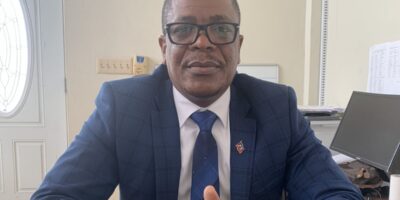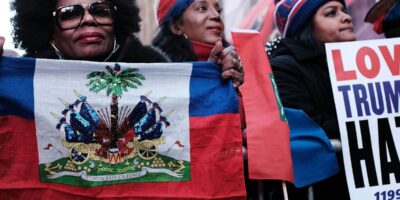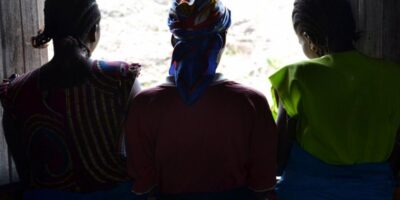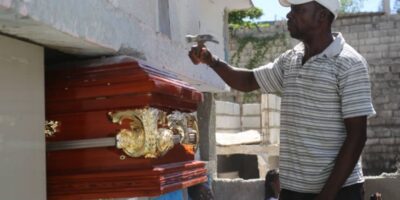This article proposes a five-point plan to address the insecurity and violence in Haiti, involving all key stakeholders in the process
The plan is built on the moral imperative for unity and solidarity in Haitian society. The first point emphasizes that Haiti is indivisible, and all its cities and regions must work together to address the crisis.
Secondly, the plan requires the participation of all sectors of Haitian society, including the diaspora. Thirdly, the plan advocates for the strengthening of the national police force and the army, as well as the mobilization of private security companies’ personnel.
Fourthly, the article proposes the creation of a diaspora security fund to finance the police, army, and eventually economic development efforts. Lastly, it calls for the international community to meet its obligation to assist states in protecting their populations, especially in cases where the state is failing to do so.
The main goals of the plan are to restore security in Haiti and create sufficient time and space to hold elections. By maximizing internal and external resources, the plan aims to address the root causes of insecurity and violence and create a stable environment for democratic processes to take place.
Given the deepening crisis, what are the options?
There is a sense of urgency, responsibility, and agency that undergirds this five-point plan which has two goals. The first goal is to restore Haiti’s security and protect its constitution. It flows with the recognition that most citizens simply want to enjoy their constitutional and inalienable rights to life, liberty, and the pursuit of happiness. Second, the plan’s outcome is to create sufficient space and time for Haiti to hold elections. The credible election of responsible leaders is a critical cornerstone for Haiti’s stability and its human and economic development.
This plan outlines a broad strategy for tackling the insecurity and gang violence that is plaguing Haiti. It consists of five distinct points or areas of focus that are designed to address the country’s immediate challenges. It also recommends ways for Haitians in Haiti as well as those living outside to participate in this effort. Overall, it provides a path toward restoring Haiti’s security and stability.
1. Haitian Solidarity
The famous quote by President Abraham Lincoln, “A house divided against itself cannot stand,” is as relevant today for Haiti as it was in 1858 for the United States. The most fundamental factor for Haitian citizens is to come together in unity, as a people and nation.
However, we find ourselves divided. We argue that Port-au-Prince (PAP) is not Haiti. Most often, this statement suggests that PAP’s gang problem is not the rest of the country’s problem. This view undermines our sense of empathy and unity. It also divides the nation at a time when it most needs unity.
Unfortunately, recent history has shown that the gangs’ control over neighborhoods we consider far away expands to new areas that are closer to us. The gangs’ war on society has a cost for those who live under their control and for the entire country. Therefore, the first step in any solution is to accept that any loss of any part of our territorial integrity is a loss of the entire nation. It means acknowledging that Port-au-Prince is Haiti, and so are other cities like Cayes, Cap-Haitian, Gonaives, and St. Marc. We must stop considering PAP as a separate entity and its problems unconnected to the rest of the country.
Solving the country’s crises requires sacrifices from all Haitians, including those in areas not yet affected by the insecurity and the diaspora.
2. Inclusive Participation
We need to avoid constantly starting over with new agreements and structures. Unfortunately, the December 21 political accord signed by de facto prime minister Ariel Henry and some political parties falls short. The signatories do not represent Haitian civil society, and many of the signatories were from fictitious organizations. More importantly, the accord lacks oversight mechanisms and concentrates too much power on Mr. Henry, who holds multiple positions (president, prime minister, and minister of interior).
Despite these issues, the accord included positive policy recommendations, especially a few from the competing August 30th Montana accord. The two most important ones include the Haitian Transitional Council (Haut Conseil de la Transition – HCT) and the Body to Control the Governmental Action (organe de contrôle de l’action governementale – OCAG).
These are positive commitments to build on. To further this progress, I propose expanding the Council’s membership to include Prime Minister Henry, representatives from the major political parties, and the Montana Accord movement. The HCT should select a new PM and put in place a technical team of experts, including members from the diaspora, to address the nation’s crisis. The HCT must have the authority to set policies, while the OCAG provides oversight and control over governmental actions.
3. Mobilization and Nationalization
When discussing Haiti, we often forget that Haitians are the ones who must take action to resolve the country’s crises, even though the international community has a history of interfering in its domestic affairs. As Haitians, we must recognize our responsibility to lead the charge in finding solutions. This is especially important for those of us in the diaspora, who have a unique role to play.
To address the problem of gangs, I propose a three-tiered security framework. The first tier consists of reinforcing the special forces of the Haitian National Police (HNP) and the army to confront the gangs. Haitian security forces should take the lead in tackling this issue. The second tier involves the use of regular HNP officers supported by international forces. This serves the dual purpose of enabling community policing with the assistance of a third party and reducing the likelihood of corruption and abuse by local officers. The third tier involves the nationalization of Haiti’s private security firms. A recent assessment report by the United Nations Office on Drugs and Crimes noted that “there could be 75,000 to 90,000 individuals working with roughly 100 private security companies across the country, at least five times the number of registered police officers.” These individuals would continue to provide regular security services against petty theft.
This framework differs from the proposal put forth by the Montana Accord, which has proposed in a recent Foreign Affairs’ article that “other countries should cut off their massive aid for the Haitian police, until there is a representative transitional government in place to make decisions.”
4. Diaspora Support
The Haitian diaspora is deeply concerned about the situation in their homeland and is eager to contribute to improving its stability and security. One way they could do this is by supporting a fund that would provide financial resources to arm and pay the police, as well as hire an internationally recognized company to oversee the ports and the official border with the Dominican Republic.
However, it’s crucial to ensure that police officers are well trained and that their actions are properly monitored to prevent human rights violations and corruption.
While enhancing security is an essential part of the solution, it’s not sufficient on its own. Addressing the root causes of Haiti’s problems, such as poverty, corruption, and lack of access to education and healthcare, must also be a priority. It will be critical to undertake parallel efforts to tackle these underlying issues to bring about a lasting change.
5. International Contribution Participation
After nearly two years of crisis in Haiti, it has become clear that the international community is not willing to deploy troops to directly fight against gangs. However, they have expressed interest in providing support to the Haitian National Police (HNP). This is partly because they recognize their international obligation to assist States in protecting their populations. In Haiti’s case, given the role of the government, this obligation may require international intervention as the State has failed to protect its population.
Despite these international norms under the UN charter, it is principally the responsibility of Haitians to defend their country. Nonetheless, the international community can and must play a role by providing Haiti with the necessary resources to tackle the gangs. Additionally, to fulfill their leadership obligations under international norms, the United States and Canada should provide necessary training, weapons, technical, and intelligence support to the front-line special forces fighting against the gangs. The Dominican Republic must reinforce its border with Haiti to reduce the inflow of illegal weapons and ammunition. Finally, Haiti should allocate half of its budget to support the efforts to restore security in the country.
In summary, I proposed a five-point plan to address the insecurity and gang violence in Haiti. It includes building on Haitian solidarity and unity, ensuring the inclusive participation of Haitian society, reinforcing the national police force and army, leveraging the financial resources of the diaspora, and leveraging international support. The plan’s primary goals are (1) to restore Haiti’s security and protect its constitution, and (2) to create sufficient space and time for Haiti to hold elections.
Johnny Celestin
Johnny Celestin is a political analyst and community activist who is committed to engaging the Haitian diaspora in a variety of initiatives He is a founding member of Defend Haiti’s Democracy and President of Konbit for Haiti. Johnny currently works as a Deputy Director at the NY City Mayor’s Office of Minority and Women-owned Business Enterprise (M/WBE)
© Cover photo : Jeanty Junior Augustin, Reuters







Comments